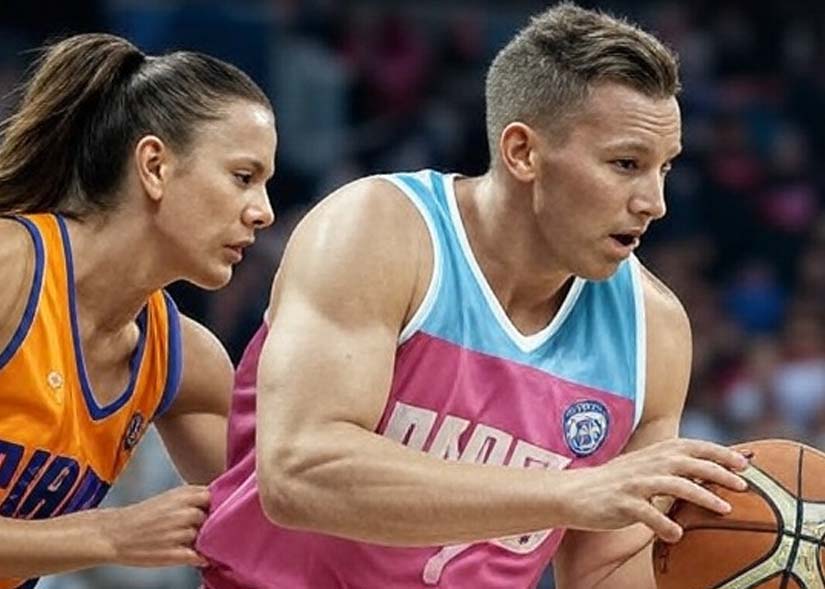TRENTON, NJ – New Jersey Governor Phil Murphy and his minions are messing around with President Donald J. Trump, and soon, they could be finding out in the form of cuts to federal funding for education.
Despite a recent executive order from President Trump aimed at barring transgender athletes from participating in school sports aligned with their gender identity, the New Jersey State Interscholastic Athletic Association (NJSIAA) has announced it will not alter its existing transgender athlete policy.
The decision marks a significant act of defiance against the federal directive, setting the stage for a potential clash between state and federal authorities.
On February 5, 2025, President Trump signed an executive order titled “Keeping Men Out of Women’s Sports,” which prohibits transgender women and girls from competing in female sports categories at schools receiving federal funding.
The order, citing Title IX of the Education Amendments of 1972, asserts that allowing transgender athletes to participate in accordance with their gender identity is “demeaning, unfair, and dangerous to women and girls” and undermines equal opportunities in competitive sports. Schools failing to comply risk losing federal funding, a penalty the Trump administration has already threatened to enforce in other states.
The NJSIAA, the governing body for high school athletics in New Jersey, responded this week by reaffirming its current policy, originally adopted in 2009 and amended in 2017.
The policy states: “A transgender student, defined as a student whose gender identity differs from the student’s sex assigned at birth, shall be eligible to participate in accordance with either their birth sex or in accordance with their gender identity, but not both.”
During its Executive Committee meeting on February 19, NJSIAA legal counsel Steve Goodell emphasized that no immediate changes would be made, signaling the organization’s intent to maintain its inclusive stance despite federal pressure.
This decision follows a pattern of resistance from states with progressive policies on transgender rights. Earlier this month, Trump targeted Maine with similar threats to withhold federal funding after the Maine Principals’ Association declared it would continue allowing transgender girls to compete in school sports, citing compliance with state law.
Maine Governor Janet Mills sharply rebuffed the administration’s threats, reportedly telling Trump, “See you in court,” during a February 21 meeting of governors at the White House. New Jersey’s stance suggests it may join Maine in challenging the executive order’s legality or enforcement.
The Trump administration has already launched investigations into several athletic associations and schools for potential Title IX violations related to transgender athlete participation, including the Minnesota State High School League and the California Interscholastic Federation.
While no funding has been rescinded as of yet, the Education Department’s actions indicate a willingness to escalate enforcement efforts. New Jersey could soon find itself in the crosshairs of such probes, given the NJSIAA’s refusal to align with the federal mandate.
Critics of the executive order, including transgender rights advocates, argue that it misinterprets Title IX and unfairly targets a small minority of athletes. “We’re talking about a minuscule number of students who aren’t posing any threat to fairness or safety in school sports,” said Chris Erchull, a senior staff attorney at GLAD Law, a pro-LGBTQ legal group. Research cited by opponents also suggests that physical advantages often attributed to transgender girls are mitigated by hormone therapy, challenging claims of inherent unfairness.
